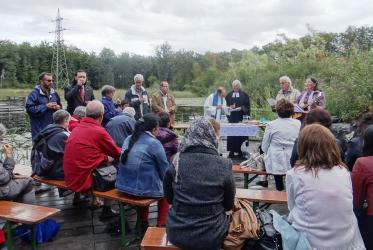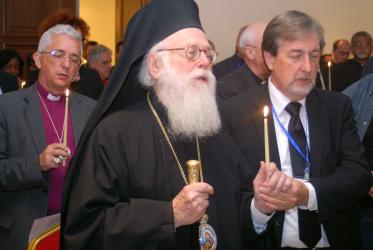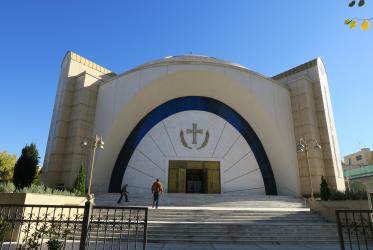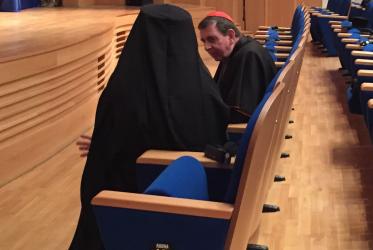Affichage de 1 - 19 de 19
07 Octobre 2019
Le COE bien représenté à la tête de «Religions pour la paix»
07 Octobre 2019
WCC/UN conference calls for coordinated action on refugee crisis
20 Janvier 2016
Rebuilding a smashed church in Albania
23 Décembre 2015
Orthodox church in Albania resurrected
23 Décembre 2015
In Albania, churches’ share of health care has grown in new era
23 Décembre 2015
Global Christian leaders concerned for persecuted Christians
09 Novembre 2015
Cardinal Kurt Koch tells WCC News: We have to deepen our solidarity
05 Novembre 2015
Le cardinal Kurt Koch: Il nous faut approfondir notre solidarité
05 Novembre 2015
WCC urges responsibility for and support to the refugees in Europe
04 Septembre 2015
Ecumenical Patriarch reaffirms power of faith for social justice
01 Juillet 2013









